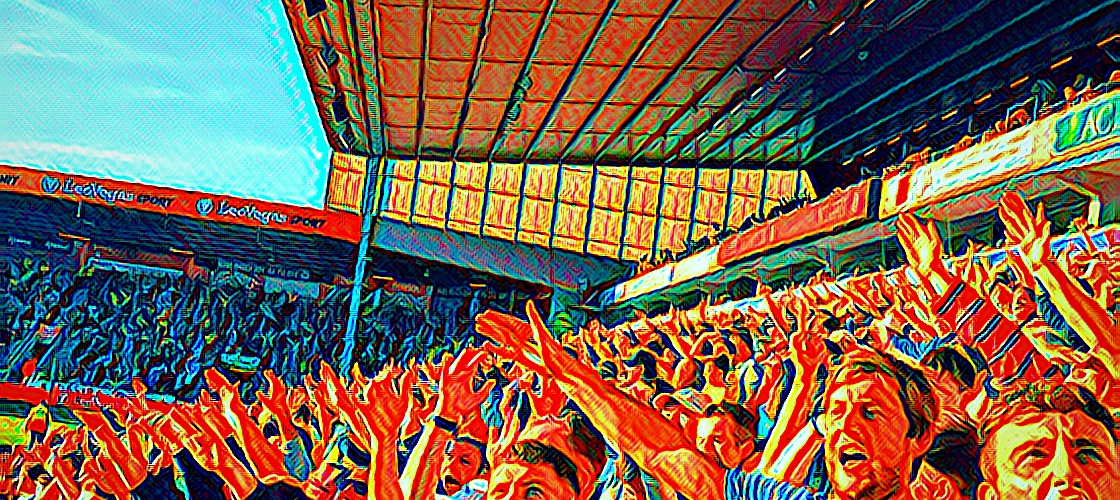Early this season, doubt ran rampant through the minds of Norwich City supporters, myself included, about whether Daniel Farke was the right man to lead us back to the Premier League. We’d been told to have patience while he was given time to put his philosophy in place and build the squad into a coherent unit fir for the system.
After a season and a half of mediocrity and aimlessness, and what seemed to be the start of another mid-table finishing season, time seemed to be up. Flash forward to the present, where 2nd place City have just managed a 2-2 draw with an on-form Sheffield United team while missing several key midfield operators in Alex Tettey and Moritz Leitner.
The club-wide philosophy the supporters had been waiting for is fully in place, and every week we seem to get several gif-able moments full of slick one-touch passing. The ease at which any of the current attacking players in the squad are able to link together is remarkable.
A prime example of “Farkeball” comes in the first goal against Sheffield United. The ball cycled back through Tim Krul twice and moved in and around the midfield like a shark patiently circling its prey. Suddenly, Marco Steipermann saw the opportunity and in one pass, the team transitioned from their methodical passing to a lightning fast one-touch move culminating in Onel Hernandez coolly slotting home.
That’s not to say this current team doesn’t have its flaws. Both goals conceded today were preventable, which seems to be the case in many of the games this season. The team will occasionally suffer a lapse in concentration and give up cheap goals, as we saw last Friday against Birmingham.
Additionally, defending corners always seems to be an issue with the hybrid zonal style in place. We often see the centre backs in the six-win the ball with all the other players often seeming to watch instead of instantly pressing the second ball. Look no farther than City’s only loss in the last 16 league matches, where two of Derby’s four goals were a direct product of not pressing the second ball.
Despite this defensive frailty, it’s important to remember that a team doesn’t find itself in the automatic promotion places come late January without having an overwhelmingly good season. And Daniel Farke’s proven himself enough as a manager to suggest that they will work around these flaws in the coming weeks.
Looking at the current success, Stuart Webber deserves commendation for the current depth of the squad. In this season, it’s become clear why it took the time to build success under this new regime. With the tightrope transfer budget, it becomes increasingly important to make low risk, high reward signings which, in nature, don’t always work out. For every Emi Buendia and Christoph Zimmermann, there’s a Marley Watkins and Marcel Franke. This season, we’ve accumulated enough of those that fall in the “hit” column, and it shows.
When undertaking the change that City did, it was never just about bringing results to the first team, but more about setting the entire club up for success in the future. The focus on maintaining Category 1 status for the academy didn’t help the first team at the time but may prove crucial to continued success. The entire academy is playing the same style, which eases the transition for players to move up the levels.
Check out this brilliant team move from last night's Under-23s draw with Leicester City in the #PLCup! ??? #ncfc
Kamal ➡️ Scully ➡️ Morris ➡️ Kamal ➡️ Richards ➡️ Barkarson ➡️ Coley ➡️ Spyrou ➡️ Keller ➡️ ⚽️ pic.twitter.com/iL725PQiwL
— Norwich City Academy (@NorwichCityAcad) January 22, 2019
Seeing all of the youth products that have succeeded this year and become integral members of the promotion push only emphasizes how big player development is. Our lack of financial resources compared to some clubs in the Championship has proven to be a sort of blessing in disguise, as City have prominently featured four youth products in this campaign. This is even after selling the likes of both Murphy twins for big money, not to even mention James Maddison.
This focus on player development and youth has not only facilitated the promotion push but also set up a sustainable pipeline to the first team in the years to come.
In hindsight, throughout that year and a half of uncertainty and growing disillusionment, all of the foundations were being put in place. Between finding the right squad to implement the style of play and ensuring an influx of young talent in the coming seasons, Webber and Farke had a vision that took time to complete.
Regardless of the end result of the season, the framework is there to carry on. Unlike the bottom side in the table, City exercised patience with the process they committed to, and I couldn’t be happier.






